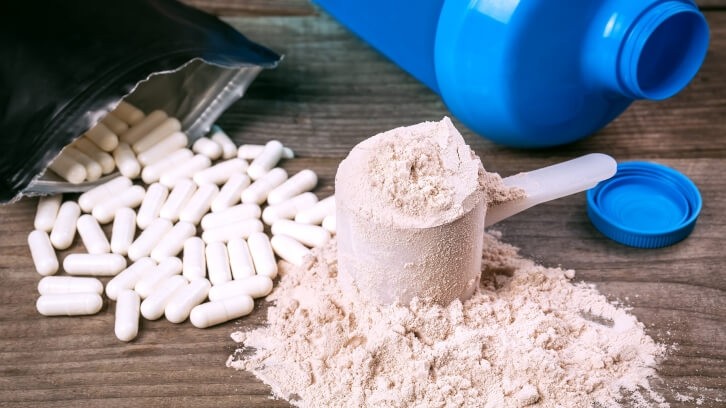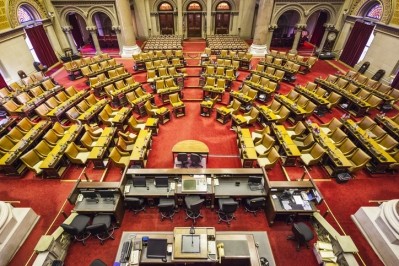NY Assembly passes bill targeting weight loss, muscle building supps

The Assembly Bill now passes to the State Senate as S5823C. If it passes the Senate, it will move to the desk of NY Governor Kathy Hochul to be signed into law. Gov. Hochul vetoed a similar bill last December, voicing concerns that the state’s health department, which would have been tasked with determining what products are subject to the bill, lacked “the expertise necessary to analyze ingredients used in countless products, a role that is traditionally played by the FDA.”
The 2023 bill defines dietary supplements for weight loss or muscle building as: products labeled, marketed, or otherwise represented for the purpose of achieving weight loss of muscle building, but not including protein powders, protein drinks and foods marketed as containing protein unless those products contain an ingredient other than protein which would, considered alone, constitute a dietary supplement for weight loss of muscle building.
Examples of those ingredients include Creatine, green tea extract, raspberry ketone, Garcinia cambogia, and green coffee bean extract, according to the text of the bill.
Scientifically unsubstantiated
In response to the bill’s passage, Kyle Turk, director of government affairs for the Natural Products Association (NPA), told us: " The New York legislature wants to take health care decisions out of the hands of consumers by prohibiting access to some of the most researched supplements in the world like creatine. The government is trying stand in the way of you being able to make your own health choices and it’s fundamentally wrong. Governor Kathy Hochul must follow the science and veto this legislation."
The Council for Responsible Nutrition called the bill a “scientifically unsubstantiated response to legitimate concerns about increasing eating disorders and body dysmorphia among young people [that] completely misses the mark by wrongly targeting dietary supplements as a cause of disordered eating.
“These products may make a convenient scapegoat, but this legislation does nothing to address the underlying causes of these mental health issues,” said CRN in a statement.
The bill, as written, would also pose a significant challenge to both retailers and enforcement authorities within the State of New York, said CRN.
“Childhood obesity affects 1 in 5 children in this country, yet we don’t kid ourselves into thinking that age-restricting junk food and sodas would put an end to that epidemic,” said Steve Mister, CRN President and CEO. “We hope the Governor will again recognize that body dysmorphia, eating disorders, and other mental health issues are complex problems that are not solved by the distraction of ‘quick-fix’ tactics like this, which only offer sufferers and their families false hope.
“We will continue to advocate for more scientifically based solutions that get at the root cause of youth eating disorders, while ensuring that families have the ability to purchase the trusted products that support healthy lifestyles.”
CRN recently funded a review of the scientific literature around eating disorders and dietary supplements, which concluded: “The evidence to date does not support a causative role for dietary supplements in eating disorders. The use of dietary supplements for weight management in both male and female teens appears to be declining, and the objective of weight loss is not observed as a common motivation for the use of dietary supplements among this age group.
“There is some evidence to suggest a potential link between the use of some products and a later eating disorder diagnosis. However, this appears to be more of a symptom or associated behavior potentially valuable as a screening tool as opposed to demonstrating causality. Therefore, it may be reasonable to state that the abuse, not use, of certain supplements may be associated with an eating disorder rather than being a risk factor.”















